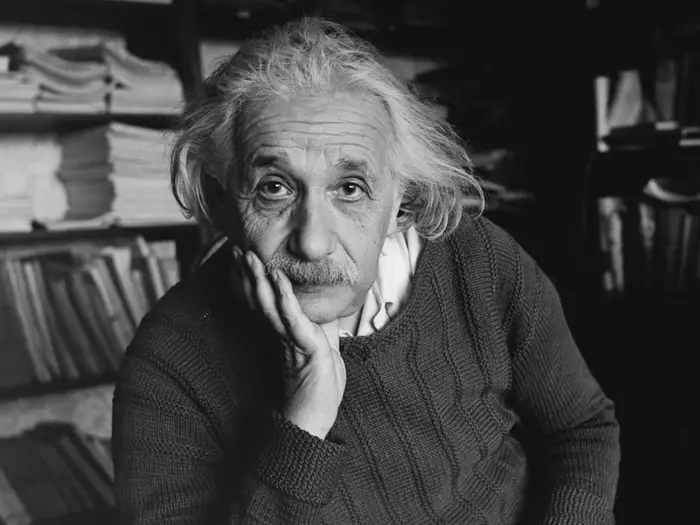Albert Einstein – Age, Bio, Birthday, Family, Net Worth
Albert Einstein, a name synonymous with genius, is undoubtedly one of the most renowned physicists and scientists in history. His groundbreaking work in theoretical physics, especially the theory of relativity, reshaped our understanding of the universe. Beyond his scientific contributions, Einstein’s life story is a fascinating journey of resilience, curiosity, and intellectual brilliance. In this article, we delve into the life, biography, family, and net worth of Albert Einstein, celebrating the man behind the genius.
Age and Early Life Albert Einstein
Albert Einstein was born on March 14, 1879, in Ulm, a small town in the Kingdom of Württemberg, which was part of the German Empire at the time. This means that if he were alive today, he would be 144 years old. However, Einstein passed away on April 18, 1955, in Princeton, New Jersey, USA, at the age of 76. His contributions to science continue to influence our world, making him an eternal figure in the realm of theoretical physics.
Einstein’s early years were marked by both academic curiosity and non-conformity. He struggled with traditional educational methods, which often clashed with his independent and unconventional thinking. Nevertheless, his fascination with mathematics and physics was evident from a young age. At the age of 16, he took the entrance exam for the Swiss Federal Polytechnic in Zurich and failed in several subjects, particularly in the non-science-related ones. However, he passed math and physics sections with flying colors, gaining admission to the institution that would later play a pivotal role in his career.
Biography and Achievements
Einstein’s professional journey is a testament to his extraordinary intellect and relentless pursuit of knowledge. In 1905, he published four groundbreaking papers in the scientific journal Annalen der Physik, which revolutionized physics and earned him the title of “Miracle Year.” These papers covered various topics, including the photoelectric effect, Brownian motion, and the theory of special relativity.
The theory of special relativity, encapsulated in the famous equation E=mc^2, established a profound connection between mass and energy, paving the way for modern physics. Einstein’s work on the photoelectric effect, which described the behavior of light when it interacts with matter, laid the foundation for quantum theory.
In 1915, Einstein presented the theory of general relativity, which expanded on his earlier work by introducing the concept of gravity as the curvature of spacetime. This theory predicted phenomena such as the bending of light around massive objects, which was later experimentally confirmed during a solar eclipse in 1919, catapulting Einstein to international fame.
Throughout his career, Albert Einstein made significant contributions to various fields of physics, including statistical mechanics, cosmology, and quantum mechanics. His work not only reshaped our understanding of the physical universe but also had profound implications for technology and everyday life.
Family Life
Albert Einstein’s personal life was as intriguing as his scientific endeavors. He was twice married and had three children. His first wife, Mileva Marić, whom he married in 1903, was also a physicist and mathematician. Together, they had two sons, Hans Albert and Eduard, born in 1904 and 1910, respectively. Unfortunately, their marriage faced significant challenges, and they eventually divorced in 1919.
Einstein’s second marriage was to his cousin, Elsa Löwenthal, whom he wed in 1919, shortly after his divorce from Mileva. Elsa had two daughters from a previous marriage, Ilse and Margot, whom Einstein raised as his own. Despite the complexities of his personal life, Einstein maintained strong relationships with his children and stepdaughters.
Einstein’s commitment to family and his sense of social responsibility was reflected in his support for civil rights and pacifism. He was an outspoken advocate for peace, using his influence to promote disarmament and condemn the use of atomic weapons. His legacy extends beyond the realm of science, encompassing his contributions to humanitarian causes.
Net Worth and Legacy
While Albert Einstein’s contributions to science were immeasurable, his personal wealth was not amassed through traditional means like business or entrepreneurship. His primary source of income was his academic appointments and speaking engagements. In 1921, he was awarded the Nobel Prize in Physics for his work on the photoelectric effect, which provided a financial boost. However, Einstein’s true wealth lay in his intellectual and scientific legacy.
Today, the name Albert Einstein is synonymous with genius, and his work continues to influence scientists, researchers, and thinkers around the world. His theories have been instrumental in the development of technologies such as GPS, which relies on the principles of general relativity for accuracy.
In terms of net worth, at the time of his passing in 1955, Einstein’s estate was valued at approximately $1.6 million (equivalent to roughly $15 million today, adjusted for inflation). While this is a substantial sum, especially for an academic, it pales in comparison to the wealth amassed by some contemporary entrepreneurs and celebrities. However, it’s essential to remember that Einstein’s true wealth lies in the intellectual and scientific legacy he left behind, which continues to shape our understanding of the universe.
Conclusion
Albert Einstein’s life and work are a testament to the power of curiosity, intellect, and perseverance. His groundbreaking contributions to physics continue to influence our world, from our understanding of the cosmos to the technologies we use daily. Beyond his scientific achievements, Einstein’s commitment to family, social justice, and peace exemplify the qualities of a well-rounded and compassionate individual.
As we reflect on the age, biography, family, and net worth of Albert Einstein, we are reminded not only of his extraordinary intellect but also of the enduring impact he has had on humanity. His legacy serves as an inspiration for generations of scientists, thinkers, and dreamers, encouraging us all to reach for the stars in our pursuit of knowledge and understanding. Click here to read more amazing article

